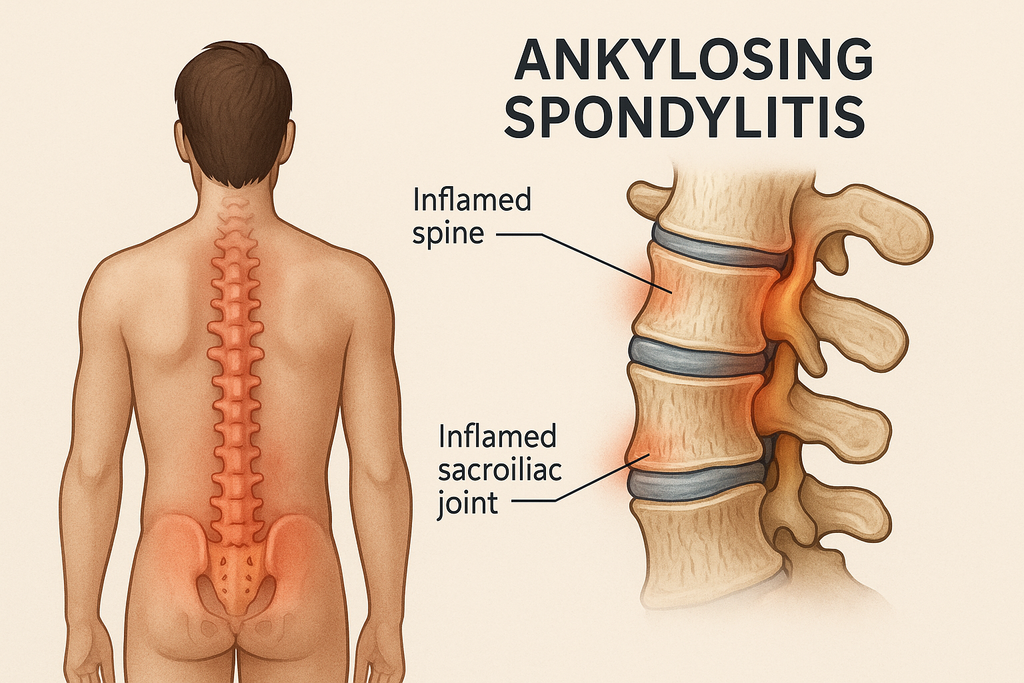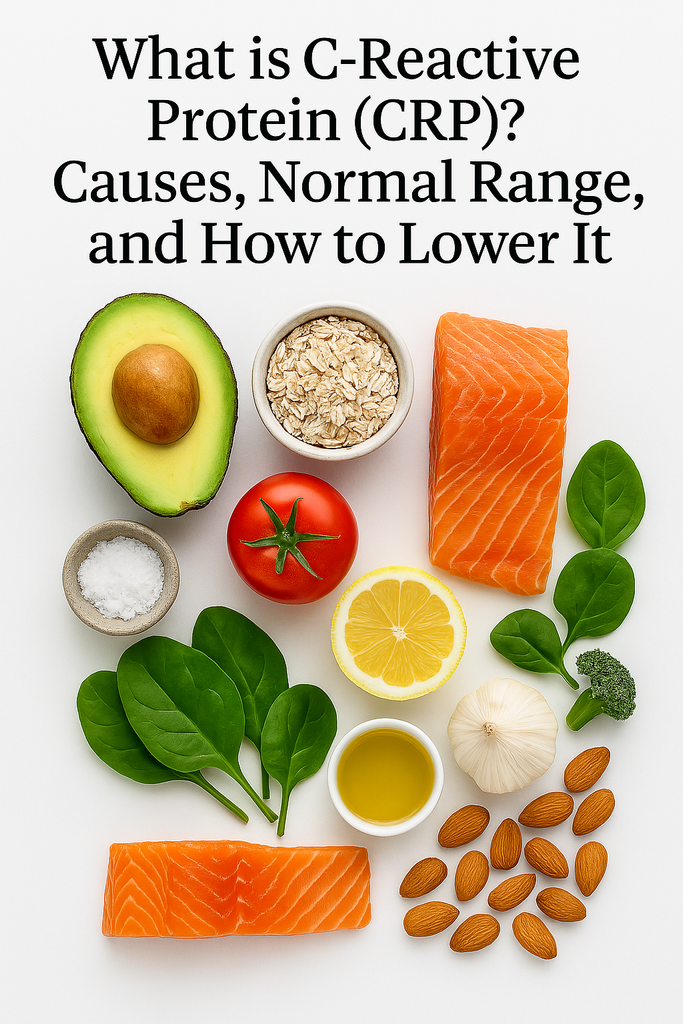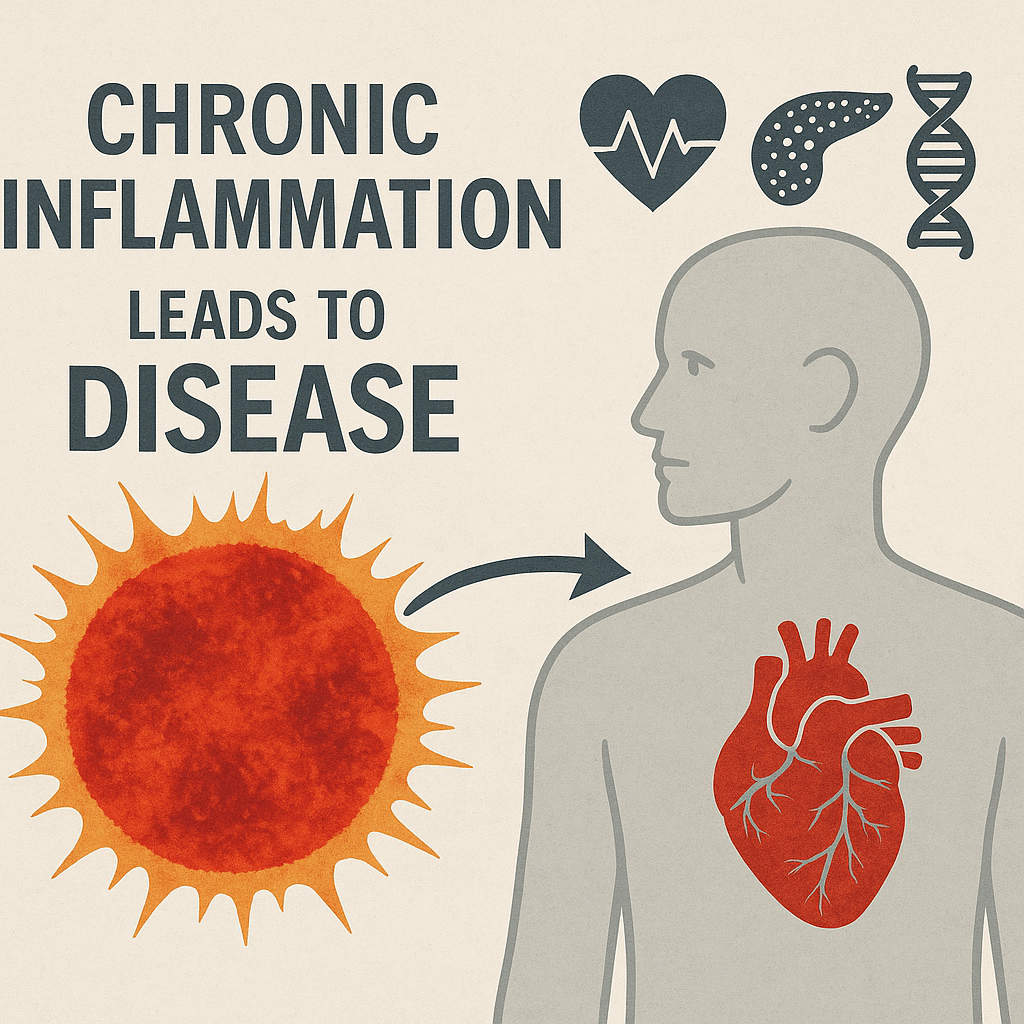News — anti-inflammatory diet
Beyond the Ache: Your Definitive Guide to Ankylosing Spondylitis
ankylosing spondylitis ankylosing spondylitis treatment anti-inflammatory diet AS diagnosis AS exercise AS symptoms autoimmune spine disease axial spondyloarthritis back stiffness biologic therapy biologics for AS chronic back pain chronic pain management HLA-B27 inflammatory arthritis physical therapy for AS spinal arthritis spondyloarthropathy TNF inhibitors
Chronic back pain is something millions of people live with every day—but what if that ache goes far beyond muscle tension or a slipped disc? Ankylosing spondylitis (AS) is a form of inflammatory arthritis that doesn't just cause back pain—it can reshape the spine, restrict movement, and deeply affect a person’s quality of life. And yet, it remains one of the most misunderstood and underdiagnosed conditions in rheumatology.
Whether you're newly diagnosed, seeking answers, or supporting someone with AS, this comprehensive guide will unpack everything you need to know. From early symptoms and genetic links to treatment strategies and lifestyle tips, we're going beyond the ache to bring clarity and empowerment to those impacted by this chronic condition.
Best Lifestyle Changes for Preventing Atherosclerosis and Heart Disease
anti-inflammatory diet arterial health atherosclerosis prevention best heart health tips blood pressure control cardiovascular support diet for heart exercise and heart health heart disease heart disease risk factors heart supplements heart support supplements heart-healthy lifestyle how to prevent heart disease LongLife Nutri Mediterranean diet natural heart health omega-3 for heart prevent plaque buildup reduce cholesterol
Heart disease remains the leading cause of death worldwide, but the good news is this: much of it is preventable. At the core of many cardiovascular issues is a condition known as atherosclerosis—the buildup of plaque in the arteries that can lead to heart attacks, strokes, and other life-threatening events. While genetics play a role, it’s lifestyle choices that often tip the scales.
Fortunately, science has identified several powerful changes you can make to not just halt the progression of atherosclerosis, but potentially reverse some of the damage. From food to fitness to stress management, these daily habits act as natural medicine for your heart. Let’s explore the best evidence-backed strategies to protect your arteries and your future. To complement these lifestyle changes, explore targeted support from LongLife Nutri’s Heart Health Collection.
What is C-Reactive Protein (CRP)? Causes, Normal Range, and How to Lower It
anti-inflammatory diet C-reactive protein cardiovascular inflammation causes of high CRP CRP and autoimmune disease CRP and fitness CRP and heart disease CRP levels explained CRP test high CRP levels how to interpret CRP how to lower CRP hs-CRP inflammation blood test inflammation markers liver and CRP natural ways to reduce CRP normal CRP range supplements for CRP what is CRP
C-reactive protein (CRP) is a marker of inflammation in the body that’s gaining widespread attention in both medical and wellness communities. Produced by the liver, CRP levels rise in response to inflammation—whether it’s from a minor infection, chronic disease, or cardiovascular issue. Measuring CRP can provide vital insight into your risk for heart disease, autoimmune disorders, and overall health status.
But what exactly does your CRP level mean? What causes it to rise, and most importantly, how can you bring it down naturally? In this guide, we’ll explore the science of CRP, the health conditions associated with elevated levels, and proven strategies to keep inflammation—and CRP—in check.
Tame the Fire Within: Natural Remedies to Reduce Inflammation
anti-inflammatory diet boswellia chronic inflammation curcumin exercise ginger green tea gut health hydration immune support magnesium natural remedies omega-3 probiotics quercetin reduce inflammation resveratrol sleep stress management vitamin D
Inflammation is a double-edged sword. On one side, it’s a vital defense mechanism that helps our bodies heal from injury and fight off infections. But when inflammation becomes chronic, it can turn into a smoldering fire that slowly damages tissues, disrupts normal functions, and contributes to a host of health issues ranging from arthritis to heart disease.
Fortunately, nature provides a wealth of tools to help us tame this internal fire. By understanding how inflammation works and incorporating natural remedies into our daily lives, we can support our bodies in maintaining a healthy balance, reduce discomfort, and prevent long-term damage. This comprehensive guide explores the best natural remedies to cool the flames of chronic inflammation and restore harmony to your system.
How Chronic Inflammation Leads to Disease: What You Need To Know
anti-inflammatory diet autoimmune diseases cancer risk chronic inflammation CRP test diabetes heart disease IL-6 inflammation and aging inflammation causes inflammation diseases inflammation management inflammation markers inflammation risks inflammation supplements inflammation symptoms inflammation treatments lifestyle changes long-term inflammation neurodegeneration reduce inflammation
Chronic inflammation is a stealthy health disruptor that often flies under the radar, quietly laying the groundwork for many serious diseases. While inflammation is a natural part of the body's defense system, designed to protect us from infections and injuries, chronic inflammation is a different beast entirely. When inflammation becomes prolonged, it can damage healthy cells and organs, setting the stage for long-term health complications.
In this comprehensive guide, we will explore how chronic inflammation develops, the diseases it fuels, its underlying causes, and most importantly, how you can take proactive steps to manage and reduce inflammation to protect your long-term health.





